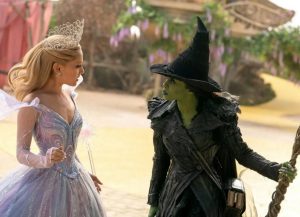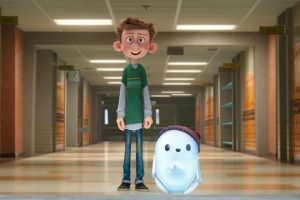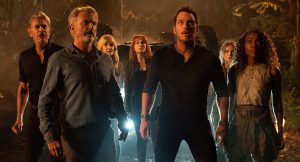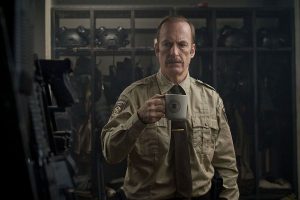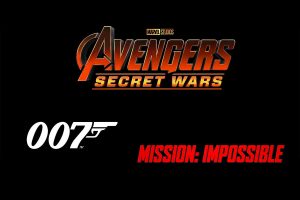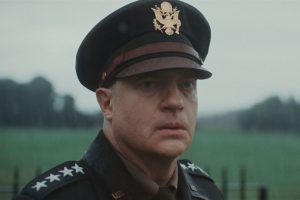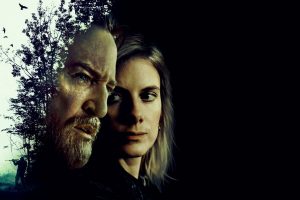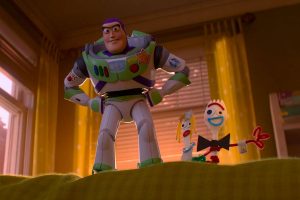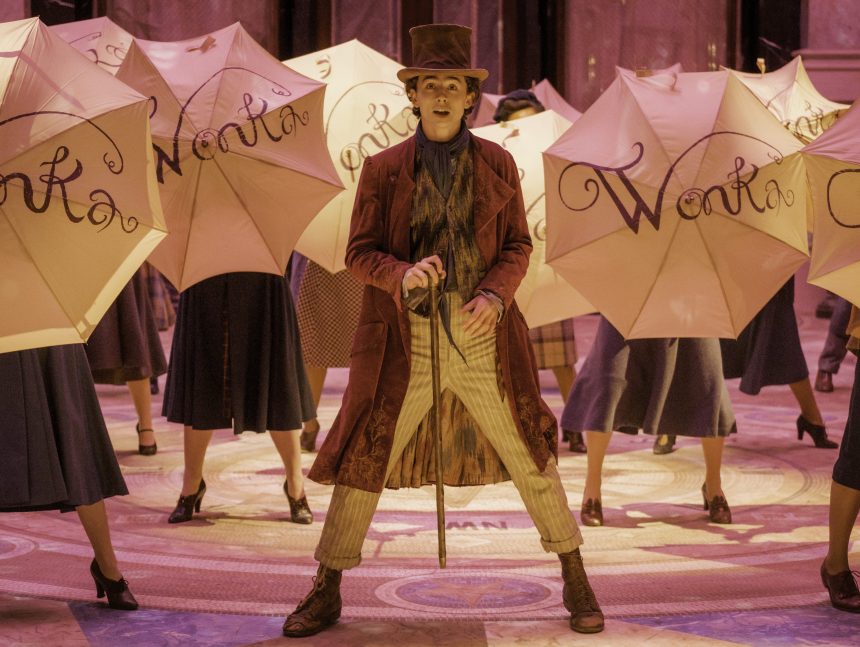
A FILM OF “PURE IMAGINATION” MAGIC
Considered as “one of the greatest storytellers for children of the 20th Century”, famed children’s author Roald Dahl has delighted and enchanted readers for generations, capturing childlike wonder and imagination within his releases. One of his most famous publications novels comes from Charlie and the Chocolate Factory, which was released in 1964, and follows the journey of young Charlie Buckets who is invited inside, along with other children, a magical chocolate factory that belongs to the eccentric chocolatier Willy Wonka. Given the popular success that the novel received, it comes at no surprise that Hollywood would eventually want to adapt Dahl’s tale of Charlie Buckets, with the release of Willy Wonka and the Chocolate Factory in 1971. Directed by Mel Stuart, the film, which starred Gene Wilder, Jack Albertson, and Peter Ostrum, received generally positive reviews from critics, but did not have a financial success at the box office, only earning $4 million at the box office (during its original run) against a production budget of $3 million. Over the years, however, Willy Wonka and the Chocolate Factory became an instant family classic and has been a rereleased several time on home video sales and repeated television airings. In 2014, the movie was selected for preservation in the United States National Film Registry by the Library of Congress. The 1971 version wouldn’t be the only film adaptation made by Hollywood as a second attempt was made back in 2005 with the release of Charlie and the Chocolate Factory. Directed by Tim Burton, the film, which starred Johnny Depp, Freddie Highmore, David Kelly, Deep Roy, and Christopher Lee, received positive critical reviews, who praised the feature for its visual appeal and underlining dark tones (something that is notable in Dahl’s works). It was also a box office success, with the film generating $475 million at the box office (the eight-highest grossing film of 2005) against its production budget of $150 million. Now, Warner Bros. Pictures (along with Heyday Films) and director Paul King, prepare to return to the wacky and eccentric world of Roald Dahl’s eccentric chocolatier Willy Wonka for a prequel endeavor in the movie Wonka. Does this latest look at Dahl’s beloved character worth seeing or is it pale in comparison to the other two film adaptation releases.
THE STORY
Aspiring magician, inventor, and chocolatier, Willy Wonka (Timothee Chalamet) arrives in the big city, ready to make his mark with the people, with a dream of opening his own shop in the famous Galeries Gourmet district. However, with little money to make that dream a reality, the newly arrived Willy finds it difficult to reach such aspirations. Finding lodging with Mrs. Scrubbit (Olivia Coleman) and her right hand henchmen Bleacher (Tom Davis), Willy is duped into charges he can’t pay, forced into work off his debit in a laundromat operation, joining by young orphan Noodle (Calah Lane), Abacus Crunch (Jim Carter), Piper Benz (Natasha Rothwell), Larry Chucklesworth (Rich Fulcher), and Lottie Bell (Rakhee Thakrar) in hard labor. Looking to find a way out his situation, Willy befriends Noodle, using her wisdom and ability to read to help understand the community, which is ruled by a “chocolate cartel”, with Arthur Slugworth (Paterson Joseph), Fickelgruber (Matthew Baynton), and Prodnose (Matt Lucas) holding a monopoly on the chocolate selling at the Galeries Gourmet, doing whatever they can to protect their secretive supply of chocolate vat hidden under a church. Looking to challenge the companies with his own special creations and magician like performances, Willy hopes to establish himself and pay tribute to his late mother (Sally Hawkins), his inspiration for becoming a chocolatier.
THE GOOD / THE BAD
There is no denying the fact that children’s author Roald Dahl has made his mark on the literary market, with his numerous published releases being critically acclaimed and widely read from various generations and across the globe, with his famous 1964 release of Charlie and the Chocolate Factory being his most recognizable title of his body of work. I can’t remember when I first read it (I think when I was in third or fourth grade), but I do remember reading it for school and was quite interested in Dahl’s fictional world, especially the imagination he expressed through Wonka’s chocolate factory and how his chocolate and candy were created. Naturally, following this, I can across 1971’s Willy Wonka and the Chocolate Factory (I think it was on TV when I first saw it) and liked it. I always like how “colorful” and vibrant all the distinct areas of Wonka’s factory were presented in the movie and loved all the “Oompa Loompa” songs that were interjected throughout. Plus, I did like Gene Wilder’s interpretation of Willy Wonka, who had that right amount of sarcastic remarks as he interacted with all the children (and their parents) throughout their tour of his factory. I mean, I still love when he says “That’s a bad egg” when Vercua Salt falls down the garbage chute. I was quite surprised to learn that the movie was immediately a success during its theatrical run, but I am happy that it has endured throughout the years and has become quite a timeless classic. 2005’s Charlie and the Chocolate Factory was something I was a little bit familiar with because I did see that film during its theatrical run and saw it during its opening weekend and in a more “analytic film critic” view of the project. To be sure, I did like it, especially how the film’s visual effects enhanced all the various areas throughout Wonka’s factory as well as some of the more darker tones of the feature’s narrative (something that Dahl’s novels incorporated). There have been quite a divide opinion on Depp’s performance as Willy Wonka, especially when comparing Wilder’s portrayal in the original film. For me, I find Depp pretty good and had a more “goofier / child-like” persona within his performance as Wonka, but the movie did shed more of his character backstory, which the 1971 didn’t showcase. Of the two movies, it’s really a tossup as I both like them equally with the same amount of positives (and negatives) that accompany each representation film. In the end, while several other works of Dahl have been adapted to the big screen, there is still something quite whimsical, fun, and entertaining when see a cinematic representation of Charlie and the Chocolate Factory….something of “pure imagination” ingenuity through a colorful guided tour through wacky chocolatier’s factory.
Of course, this brings me back around to talking about Wonka, a 2023 musical fantasy film and prequel origin tale presentation to Dahl’s character of Willy Wonka. I can’t remember when I first heard about this (I think it was sometime last year), but I did come across the headline news that Warner Bros. Pictures was going to make a Willy Wonka prequel feature that chronicled the early days of Willy as a chocolatier, and that it was going to be directed by Paul King, the director behind the beloved film adaptation of 2014’s Paddington (and its 2017 sequel). Of course, being a fan of both Dahl’s Charlie and Factory story and of King’s two Paddington movies, I was quite intrigued by this idea of exploring Wonka’s early life before the events of Dahl’s novel took place. Soon after that, the film’s cast was announced, with actor Timothee Chalamet playing the role of younger Willy Wonka in the movie as well as other familiars acting talent (i.e., Grant, Hawkins, Carter, Coleman, etc.) being attached to the project. From that point, I was definitely interested in seeing the movie, which was furthered fueled by the film’s movie trailers that began to appear a few months prior towards its December 2023 release date. From the trailers alone, the movie looked to have the same type of “feeling” that King’s Paddington movies had, with a fun, charming, and whimsical kid-friendly nature throughout, which is kind of good thing and what I was expecting from this tale. So, it goes without saying that I was invested in seeing Wonka when it arrived in theaters on December 15th, 2023. I did see it during its opening weekend, but waited a few days after its initial release to get my review done properly (as well as “the usual” work schedule routine). Now, that have some “free time” …. I am ready to share my personal thoughts on this film. And what did I think of it? Well, I really liked it. Despite a few clunky mechanics and some less memorable tunes, Wonka is a beautifully whimsical and delightfully entertaining that still carries the child-like wonder of the eccentric character from Dahl’s work (thanks to a stellar performance from Chalamet), but also infuses a charming and heartfelt story from King’s signature style of direction. It’s hard to top the original Charlie and the Chocolate Factory narrative (both from the book and the movies), but the film has plenty charisma, tenderness, and pure entertainment to make the film’s appeal inviting and infectious.
As mentioned, Wonka is directed by Paul King, whose previous directorial works include Paddington, Paddington 2, and Bunny and the Bull. Given his familiarity of creating such great film adaptations from the beloved Paddington character, King seems like the most suitable choice to helm such a project as this, approaching the material with sense of respect and integrity for those who loved Dahl’s story (in both its literary form and cinematic presentations). As to be expected, King invokes and interjects a lot of what he learned (and achieved) with his two Paddington endeavors, making Wonka have the same type of feeling of heart and warmth throughout the movie and clearly having a thematic message of hopes and dreams. Such fundamental ideals that clash up against the money grumbling villainy (as seeing the Slugworth’s Chocolate Cartel monopoly operations and in Mrs. Scrubitt scheming rent charges) is quite a kid-friendly approach to such truths, with King presenting these obstacles to not just the character of Willy, but to several other individuals who are also struggling of aiming for their dreams. Such optimism and hopeful desire is clearly visible throughout the film’ entire runtime, with King laying on such heartfelt and tender desires that will surely melt your heart and pay attention to the inner child within us all. While the future Willy Wonka might be jaded with his darker wit humor and sarcastic remarks towards the people (as a whole), the version that King presents is a wide-eyed young man who optimistic and yearn for a chance at his “big break”; something that we can all relate to in the reflections in the younger selves.
King also has plenty of heartfelt and dramatic moments that help build upon the feature’s tone of hopes and dreams, which (again) is relatable to most and generates that “warm, fuzzy feeling” that I had while watching the Paddington movies. Such big ideas and emotions don’t get lost in the grand scheme of King’s vision for Wonka and actually harmonizes with the film’s direction, which has that “story book” feeling. King knows who is target audience is and keeps the feature level-headed and easy to digest for all ages, which is a good thing. It’s a kid’s movie through and through with plenty of broad strokes in story and characters throughout the entire picture, with many having that “theatrical boldness” elements tossed into the mix. This, of course, makes the film’s comedy, which King infuses a lot throughout the movie, quite humorous and enjoyable, with plenty of kid-friendly jokes and gags on full displayed and made for some levity moments. All of this is presented in a way that makes Wonka a multi-faceted project of humor, heart, and imagination that never loses sight of its target viewers with King making feature that the project’s integrity remains intact for a all-around great viewing experience.
This then brings up the film’s musical, with Wonka being labelled as a musical to some degree as King and his team produced original songs and numbers to help propel some of the film’s scene with character expressing there feelings, desires, and positions in life. It was definitely a bit of “head scratcher” at first when I heard that the movie was going to be considered a “musical”, but, for better or worse, it actually does work…for the most part. I do have a few problems with this notion (more on that below), but it definitely gives the feature plenty of character and / or swagger to the proceedings and offers another “kid friendly” approach to the subject material being told. The song themselves are cute and light and offer up one would expect from a narrative plot of this caliber, describing the hopes and dreams and the longing for something more. If I did have to pick my favorite one, I probably would say that the song “A Hatful of Dreams”, which serves as the film’s opening numbers and sets up the film’s presentation and overall tone of Wonka. Of course, as to be expected you hear two of the famous songs from 1971’s Willy Wonka and the Chocolate factory songs and I do have to say that there are pretty great to hear in this movie and easily fit right into the grand scheme of things in the picture. In addition, the choreography work in some of these sequences is quite terrific and dazzling fun to behold. All the dancing is executed quite well, and the props used are such a treat and helps builds upon the idea of watching a staged musical.
While I would’ve normally placed this part in the “presentation” paragraph of my review, I do have to say that the film’s visual special effects shots are fun throughout the entire film. No, they are not mind-blowing or anything that could rival the likes of any major tentpole blockbuster studio endeavor, but I do have to say that the movie’s visual effect shots and sequences definitely had to the appealing charm that Wonka has to offer, enchanting viewers (again) with a “story book” feeling of child-like wonderment of seeing Willy’s chocolate creation having some bizarre side effects as well as imaginative backgrounds to some of the more extravagant moments. In addition, King’s position of such color and imaginative scenes are some of the best parts, including the film’s closing moments, which was truly amazing to see with such details (as well as nods and callback winks) to the original Charlie and the Chocolate Factory narrative, which is pleasing to see. Overall, King does quite the impressive job with his prequel, making Wonka magically wonderful feature film that hits all the right notes and makes both a “easy going” film as well as sincere gesture of heartwarming remainder of the child-like wonderment in all of us.
For it’s presentation, Wonka is quite the “storybook” like framework that definitely works and boasts plenty of likeable charm throughout its background setting visual aesthetics. Naturally, the film’s setting is a character unto itself, with such trims of details and layouts making the film’s city (I believe it’s a European city-esque) having plenty of life and personality, with several picturesque buildings and locations as well as dingy and grimy underbelly of cityscape. It’s definitely full of life and character, which I personally love, and gives plethora of great looking set pieces where the movie’s character bounce around throughout the narrative (both interior and exterior). Plus, the film’s costumes (as well as hair / make-up) are top-notch as well and keeps “in-line” with the primary time period and visual nuances throughout. Thus, the feature’s main “behind the scenes” players, including Nathan Crowley (production design), Lindy Hemming (costume designs), as well as the entire art direction team and the hair / makeup department, for their solid efforts in bringing this colorful world to life that mixes realism and colorful vibrancy together. In addition, the cinematography work by Chung-hoon Chung is quite good, with plenty of dynamic and dramatic camera shots and usage of lighting and shadowing effects to make certain scenes very “cinematically storybook-ish”, for which is something that King’s projects have been known. So, kudos to Chung’s work. Lastly, the film’s score, which was composed by Joby Talbot, is great, with its lively melodies and other soundtrack-like composition pieces that are definitely instrumental to the Wonka’s usage of dramatic / character-built moments. It’s whimsical and tenderness and all the way around…. a great film score.
While I did enjoy the movie (a lot), Wonka does have several minor parts that are bit “wonky” (no pun intended) and do draw a bit of criticism throughout the film’s undertaking. How so? Well, for starters, the film’s predictable plot is quite formulaic to the touch. Of course, I do understand that this is a kid’s movie and more geared towards them, but, the fact of the matter is that even kid-friendly films could have some more “surprises” along the way to help engage viewers within its narrative. As it stands, Wonka is a very streamlined endeavor with very little to no surprises one would expect. Everything is clearly defined in black and white (heroes are good and / or innocent, while bad guys are wicked and moustache-twirling evil), with very little in the way of being “gray” sort of speak. This then makes King’s Wonka a somewhat “safe” of a motion picture by never coloring outside the lines of a formula parameter and work within. There is not much risk or to challenge the status quo in terms of storytelling or presentation. This also pays a part of the film’s pacing issues, which, while not numerous, does have two or three moments where the movie’s narrative moves at a sluggish pace. I kind of figured that this was going to be the case with the movie, so it didn’t bother me as much, but I would’ve liked to see a bit more “pizzazz” and / or risk made to deviate some of the conventional material for something a bit more in the unexpected territory.
In addition, while I did mention above that the film’s musical numbers are relatively good and lighthearted fun throughout much of the proceedings, the fact is that none are quite memorable. They were definitely better than what I was expecting, yet they don’t stay with me after I left the film. Thus, songs like “Sweet Tooth”, “You’ve Never Had Chocolate Like This”, and “Scrub Scrub” are fun and lighthearted to fit perfectly within the film’s tone and presentation but aren’t exactly ear-grabbing enough to make me want to go out a buy the songs. In fact, this also brings up the question of making Wonka a musical altogether. Yes, it definitely is something different and something a bit more “bold” to do, especially with King at the helm, yet the movie could basically stand on its own without the usage of musical numbers. What’s presented works, but removing them altogether could’ve possibly allowed more time with certain characters, who were minimalized due to the overabundance of singing. I think the story, while simplistic and easy to follow, could still be entertaining and engaging without the inclusion of musical songs.
What helps overcome most of the problems in the movie is Wonka’s cast, with the acting talent attached to this movie bring the right amount of charm and theatrical boldness to the proceedings for some delightfully fun performances. While I usually don’t mention them in my review posts, I do have to mention that casting director Nina Gold did an impressive job in casting all of these individual actors and actresses for this particular project. Yes, most the characters are a bit “broad” to some degree, but that’s part of the charm of the film’s story and each one of them knows that, which (again) is quite fun. Leading the charge in the feature (and headlining the title character) is actor Timothee Chalamet as Willy Wonka. Known for his roles in Call Me By Your Name, Little Women, and Dune, Chalamet has started to become another upcoming acting talent of recent years, being attached to more prominent films and in more lead roles. Thus, it comes as no surprise that Chalamet would want to tackle such a juicy role such as a Roald Dahl’s character of Willy Wonka, a character that has only been portrayed by actors Gene Wilder and Johnny Depp respectfully. To his credit, Chalamet does quite an impressive job in the role, infusing the character with plenty of whimsical charm and charismatic energy for such a lively and imaginative performance. There’s plenty to like about him (i.e., Willy Wonka) in the movie and Chalamet knows how to play the part quite well, utilizing his theatrical charm and innocent manner to make such an endearing and eternally optimistic character in the feature. He also definitely looks and acts the part of a younger Willy Wonka, expressing the “go getting” attitude towards life and his situations as well as being a bit quirky and eccentric. Chalamet’s performance (well, maybe the character on how it is written) does lack that classic dark wit of comedy humor (something that Wilder and Depp were able to capture in their portrayals) from Dahl’s creation. However, since this iteration of the Wonka is a younger version, maybe hasn’t grown into the maturer persona yet, with (again) the film having more of hopeful and optimistic portrayal of him. Still, regardless of that notion, Chalamet is quite infectious and delightful in this iteration of Willy Wonka, a character that has plenty of charm, energy, determination to make his mark on the world and to bring a world of happiness and joy through his chocolate creations.
Behind Chalamet, who actually makes memorable performance in the movie is actress Olivia Coleman (The Crown and The Favourite) as Mrs. Scrubitt, a nasty and conniving innkeeper who runs a shady business. Coleman, who is known for turning up memorable characters throughout her career, continues that particular mantra in Wonka, with her portrayal of Mrs. Scrubitt to hilariously fun (in a wicked way) that provides a lot of laughs and amusement. Whenever she’s on-screen, Coleman takes the spotlight and demonstrates her equal amount of evil snarky attitude and witty humor quips to make her character one of the most memorable (and hilariously fun) throughout much of the movie. Alongside her, actor Tom Davis (Paddington 2 and King Gary) does an equal fun and amusing job within his performance of Bleacher, Mrs. Scrubitt’s right hand man and partner-in-crime cohort. Like Coleman, Davis knows how to lay it thick with his goofy wickedness (kid-friendly, of course) and makes a likeable baddie, especially whenever his character of Bleacher shares screen time with Mrs. Scrubitt.
Other villains in Wonka make up the “chocolate cartel”, the three head honchos (Arthur Slugworth, Gerald Prodnose, and Felix Fickelgruber) that have a monopoly of chocolate marketing in the city’s Galeries Gourmet district, who are played by actors Paterson Joesph (The Beach and Neverwhere), Matt Lucas (Little Britan and Doctor Who), and Matthew Baynton (Ghosts and The Wrong Mans). Collectively, the three are “cookie cutter” bad guys for a movie of this particular projection and caliber, which is not necessarily a bad thing….if you know what I mean. There mean, but goofy, bad, but of the slapstick variety, and their motivations are quite broad. While more depth and understanding would’ve been appreciative, these character definitely work for the movie’s narrative structure and the story’s temperament. It’s not the most compelling aspect of the movie, but the acting talents involve help elevate such derivate nature of “the bad guys” in a family friendly film. In addition, actor Keegan-Michael Key (The Super Mario Bros. Movie and Keanu) provides an amusing character job in the role of the city’s unnamed Chief of Police, who has an unhealthy “sweet tooth” craving for chocolate. He’s more of a “comedic relief” in Wonka rather than having any type of backstory purpose and / or narrative driven dilemma for the story, but Key seems to knows this and does what he can with the material, which certainly does elevate the character to be fun throughout the feature’s plot.
Who helps Willy through these endeavors are several side characters in the movie, with the most notable is Noodle, a young orphan girl that quickly befriends the magical chocolatier early on in the film, and who is played by actress Calah Lane (Firebuds and Family Reunion). Lane’s Noodle acts like the secondary-ish lead (to some degree) in the movie and helps guide Willy on his journey arc. It’s a bit conventional as some the child youth being the hopeless dreamer, with a predictable outcome trajectory, but Lane finds the right amount of gumption and screen presence to rise above the formulaic nature of her character. Plus, she and Chalamet share some good on-screen chemistry with each other, which helps us (the viewers) buy into the friendship with one another.
The other characters that work at the laundromat, including actor Jim Carter (Downton Abbey and Shakespeare in Love) as Abacus Crunch, actress Natasha Rothwell (Insecure and Saturday Night Live!) as Piper Benz, actor Rich Fulcher (The Mighty Boosh and Disenchantment) as Larry Chucklesworth, and actress Rakhee Thakar (EastEnders and Sex Education) as Lottie Bell, are a lively and charismatic grouping of characters that befriend and help Willy throughout the movie. While they might be slightly generic and stock-like in their respect roles, they do get a one or two moments in the spotlight to shine and the acting talent that play them are up to the task in making these characters come alive with the right amount of energy and colorful personalities.
Perhaps the only downside of the characters in the movie would have to the roles of Lofty, the Oompa Loompa who frequently steals chocolate from Willy on a nightly basis, and Father Julius, a chocolate-loving priest who guards the entrance way to the vault where the “chocolate cartel” hold their vast supply of chocolate. Naturally, the acting talents of actors Hugh Grant (Love Actually and Notting Hill) and Rowan Atkinson (Bean and Johnny English) have enough screen presence to make their characters memorable, but the movie (or rather the script) doesn’t lotte them enough time. Grant’s Lofty comes into the feature more than halfway through the picture and sparsely plays a part in thee main plot, which, given the importance of the Oompa Loompas in Dahl’s novel (and in the previous two movies) one would expect a large role for the mischievous little orange man. As for Atkinson’s Father Julius, I do understand that he was, more or less, just side / supporting character in the feature, but the actor clearly is having fun playing the role and the script could’ve easily expanded his character to have more goofy fun. What’s presented is sufficient enough, but I just felt like the movie didn’t fully utilize the character of Lofty or Atkinson’s screen presence to the fullest extent in Wonka.
The rest of the cast, including actress Sally Hawkins (The Shape of Water and Paddington) as Willy’s unnamed mother, actor Kobna Holdbrook-Smith (Mary Poppins Returns and Paddington 2) as Police Officer Affable, actor Simon Farnaby (Paddington 2 and Burke and Hare) as zoo security guard Basil, actress Charlotte Ritchie (Call the Midwife and Repeat) as Barbara, actress Ellie White (Year Friends and Ellie & Natasha) as the “mistress of the keys” Gwennie, actor Rufus Jones (Camping and Hunderby) as Jenkins, actress Sophie Winkleman (Peep Show and Two and Half Men) as the Countess, actress Tracy Ifeachor (Treadstone and Showtrial) as Dorothy Smith, actress Isy Suttie (Man Down and Whites) as the unnamed fruit / veg vendor, actor Phil Wang (The First Team and @Elevenish) as Colin, and actor Tim FitzHigham (Paddington 2 and Hereafter) as the unnamed Ship Captain, make up the minor supporting characters in the film. Most of these characters only have one or two scenes in the film, but the acting talent behind them proves for some small, yet limited performances to effectively work in the character’s capacity in the story.
FINAL THOUGHTS
Arriving in the city with a pocket of full dreams of become the premier chocolatier the world has ever known, eccentric magician / inventor Willy Wonka sets out to make his dreams a reality in the movie Wonka. Director Paul King’s latest film takes the creation of Roald Dahl’s beloved chocolate maker and present a new tale to spin, presenting a prequel origin story to the author’s acclaimed literary classic that speaks to both King’s signature style of filmmaking as well as Dahl’s quirky “large-than-life” character. While the movie does have one or two minor nitpicks, including some predictable parts, slight pacing issues, and some characters not getting enough time, the movie itself rises above those challenges to create such a fun and charming feature to behold, with special attention to detail from King’s direction, great thematically tones, a vivid and vibrant visual presentation, fun “theatrically bold” characters, and a terrific cast across the board. Personally, I really liked this movie. I think some of the musical numbers could’ve been better written (or just removed altogether) as well as some other minor stuff, but, on the whole, the movie was charming and whimsical and just lighthearted fun movie to watch. The story, while conventional at times, was engaging, the themes of hopes and dreams were palpable and relatable, the choreography work for some of the musical songs was energetic and executed well and the cast (again) was just fantastic and knew how to play these characters. I knew that I was going to like this movie, since it was going to be directed by King, and I initial thoughts still stand on this project. Thus, my recommendation for this movie would be a solid “highly recommended”, especially for fans of King’s Paddington movies, younger moviegoers that are looking for a good / safe “kid friendly” family movie night experience, as well as fans of Dahl’s work. In the end, Wonka is a charmingly fun and delightful entertaining film that invokes the spirit of magical optimism and child-like wonder on its outer candy coating, while its inner core is filled with heart and warmth in its chocolatey center, unwrapping a prequel tale that’s “pure imagination” splendor.
Also, as a personal side note, Wonka is my 725th movie review since I’ve started blogging. This is truly a huge and celebratory milestone for me! I wanted to give a special thank you to all my readers, followers, and fellow bloggers for reading my movie reviews and giving me this platform to share (with you guys) my views on cinematic tales.
4.3 Out of 5 (Highly Recommended)
Released On: December 15th, 2023
Reviewed On: December 22nd, 2023
Wonka is 116 minutes long and is rated PG for some violence, some mild language, and thematic elements

